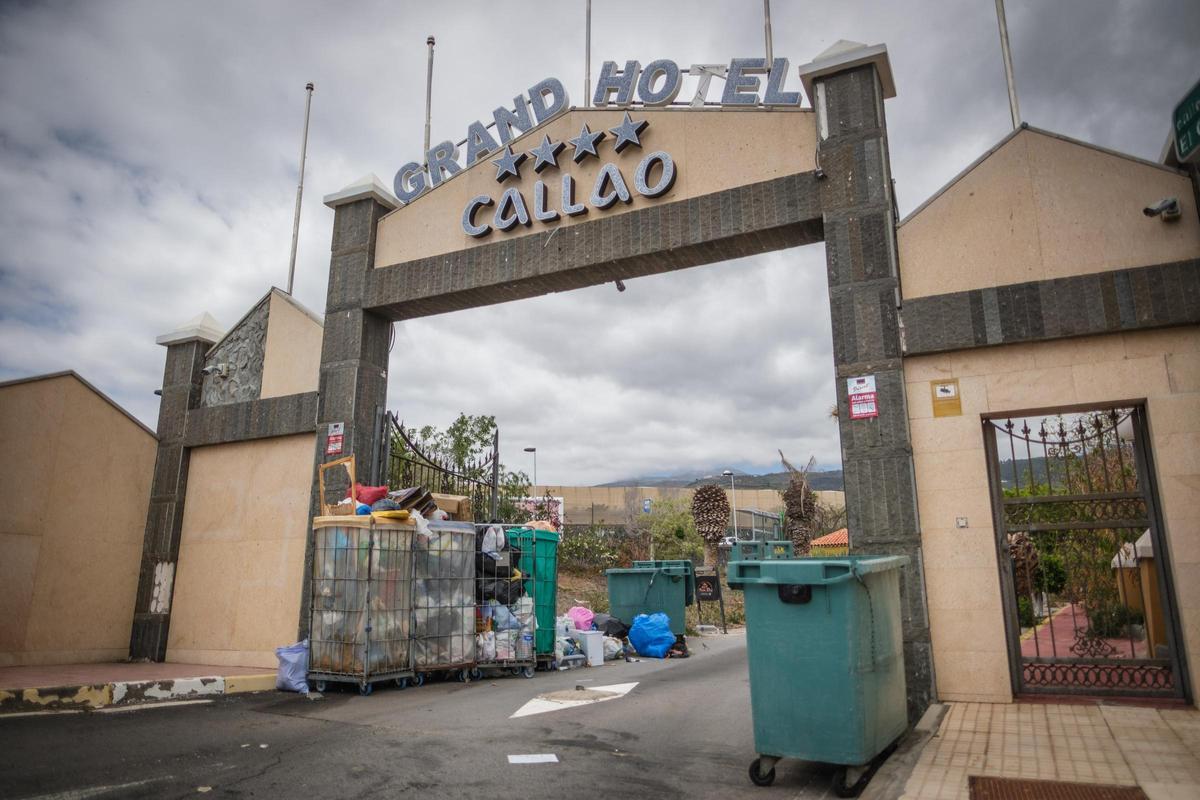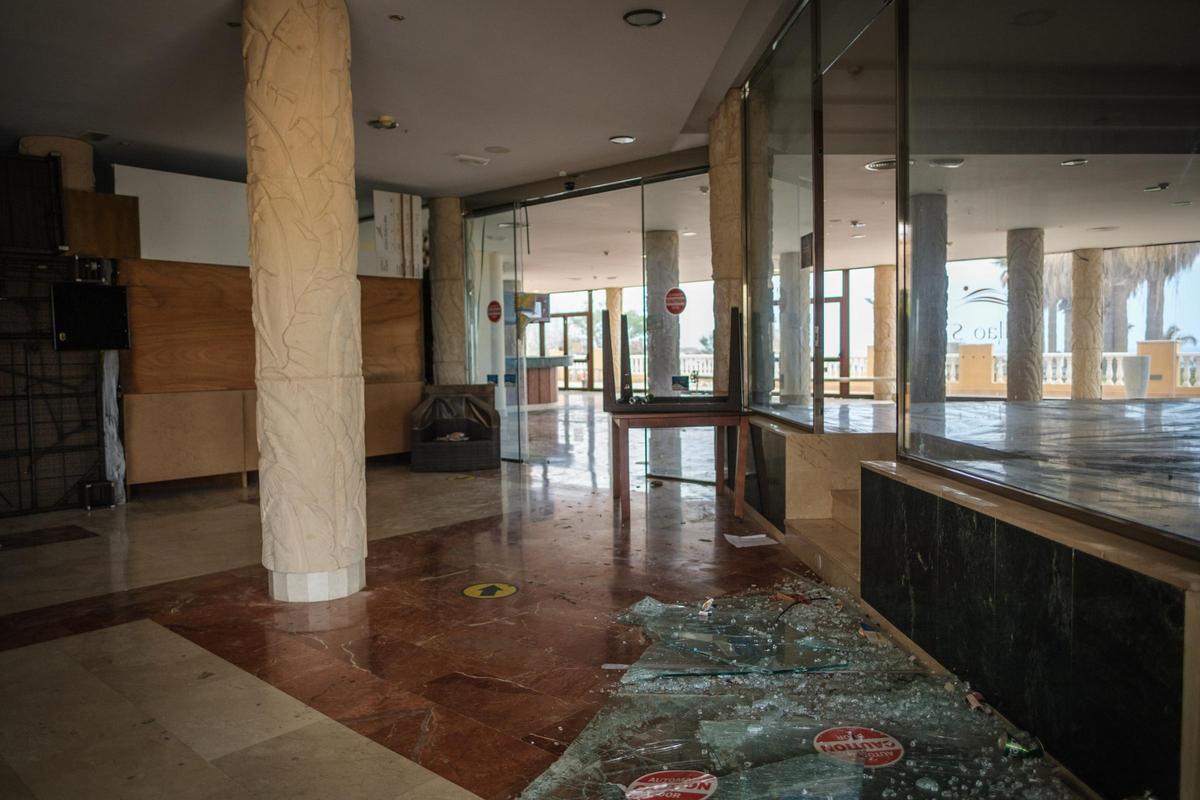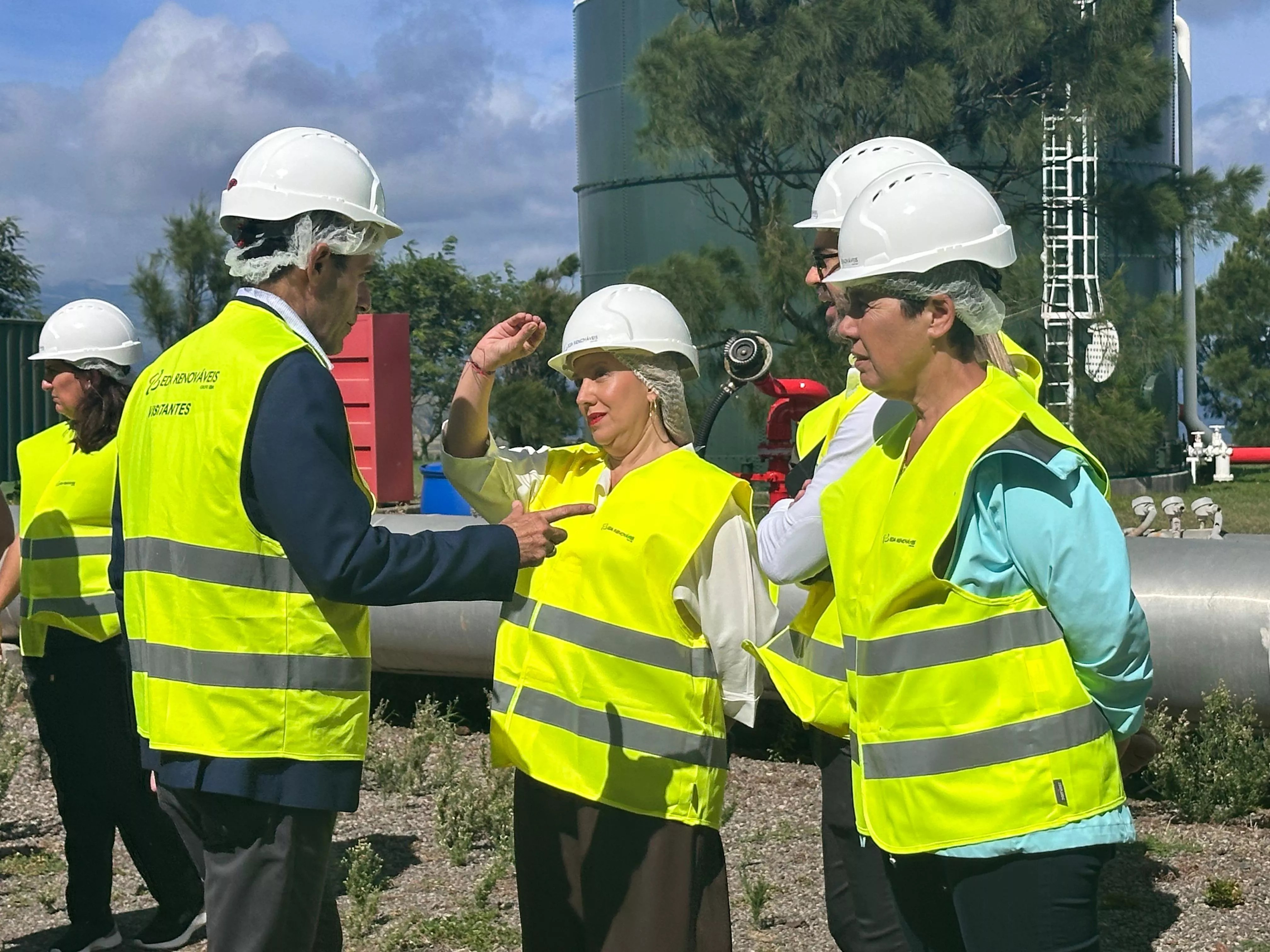Since mid-February, the 92 rooms of the Grand Hotel Callao Sport, situated on wild street (Adeje), have been occupied by approximately 300 individuals, who do not pay for electricity, water, or any basic services. The owner, Domasa, SA, has lodged a formal complaint, initiating a procedure that has thus far resulted in the dismissal of the requested preventive eviction, following the Prosecutor’s Office’s stance, which determined that there was an absence of “criteria of proportionality for such a measure.”
Due to COVID-19 and the mandatory lockdown, the Callao Sport Hotel closed, reopening at the end of July 2020. Two months later, the business ceased operations for economic reasons and the property was placed up for sale. Despite having security personnel and systems in place, an attempted burglary occurred on February 18, damaging cameras and surveillance equipment—prompting intervention from the Civil Guard. As a result of the operation, two individuals were arrested, while a third escaped, and one officer required medical attention at a local hospital. At that time, there were already a handful of individuals residing at the hotel; three days later, the number had surged to around fifty, according to local police and the property’s reports.
Rapid Occupation
Within three months of that incident, it is estimated that the hotel has been occupied by roughly 300 people, predominantly of Moroccan and Latin American descent, «to whom they charge rent for their stay». Those accommodated are regularly rotated, as reported by neighbours and the property. The company’s sole administrator confirms that the surrounding area has become rife with insecurity, fear, discomfort, filth, and boredom: «Besides being a personal issue, which it is, it has transformed into a social issue».

Containers overflowing with rubbish at the hotel entrance. / Andrés Gutiérrez
Domasa, SA inaugurated the Callao Salvaje Sport Hotel in 2009, transforming the facilities to cater to sports-related accommodation. While maintaining this offering, the new management identified French tourists as their primary market and upgraded the hotel to four stars. The staff initially comprised 45 employees.
The company has filed civil and criminal lawsuits, but “none have been successful.” The sole administrator appears resigned: «That is the nature of justice in Spain. Your property is not truly yours, and squatters possess more rights than we do as owners».
The Latest Judicial Decision
The most recent ruling has come from the Arona Court of Instruction number 2, which rejected the preventive measures requested by Domasa, SA— a judgement that the property has already appealed to the judge “with little hope.” The case will now be transferred to Instruction number 3 in Arona, which will prolong the resolution process, according to the administrator.
The squatters at the Callao Sport Hotel “live in luxury.” They do not pay for water, electricity, or rubbish disposal, an expense which the hotel property is legally required to cover and cannot cease. It is notable that the property has been billed for electricity costs that exceed three times the average expenditure when the hotel was fully operational.
They Do Not Appear Vulnerable
Both the local community and the sole administrator of the owner company assert that the squatters “do not appear to be vulnerable individuals.” The majority are young, with some children and a few elderly. Moreover, it is common to see high-end vehicles arriving, often with occupants that include families with minors: «They are not the typical vulnerable families found here. We are aware of a Moroccan individual who was brought from his country after a payment of €3,000, but claimed to be unknown.»
This example highlights the fact that the currently occupied areas are a business for external individuals: “They continue to charge for accommodation,” although the rates vary, and the consulted sources are unaware of the criteria. «Some may be regulars, but the vast majority come and go. They have established a business,” the owner company adds.

Interior facilities of the hotel deteriorated and vandalised. / Andrés Gutiérrez
The Initial Alert
Local residents were the first to raise alarms about the hotel occupation when they noticed lights illuminating a once-dark building for almost five years, along with the influx of people leading to noise and night parties. “These days, the neighbours cannot venture out due to fear; they worry about intrusions into their homes, as there is a section of the hotel very close to the residential complex beside it,” explains the administrator.
Since the beginning of the occupation three months ago, the facilities—previously fully furnished—have deteriorated significantly. Security forces have located some items removed from the hotel being sold in the northern part of the island. The locals feel intimidated.
“Nothing has happened, but we don’t feel safe here”
Adjacent to the Callao Sport Hotel is the Mariben urbanisation on El Basalto street. “We are enduring this situation alone, unlike the case of the squatters in Toscal, Santa Cruz,” remarks one neighbour, who prefers to remain anonymous to avoid potential reprisals. They explain that the first sign something was amiss was that the hotel alarms were triggered, which was “completely operational; only neglect was evident due to the unkempt gardens.” The squatters “entered through a side entrance as the main doors were locked, and in three weeks it was full.” Their account leads them to estimate that over 200 individuals reside in the hotel, not just limited to the 92 rooms, “but they have taken over everything: common areas, gym, kitchen…”.
“It’s like a party every day; some nights, the celebrations occur in one area, other nights in another, with loud disturbances, and people shouting from the balconies…” comments the neighbour who lives in a quiet part of Adeje. One section of the urbanisation “shares walls and fences” with the hotel, an area severely impacted by “lack of privacy” as squatters show no hesitation in looking out and «making remarks. There’s little to be done as they are directly above you, watching». The situation has compelled the neighbourhood to install alarms “because they are an easy entry point into your home.” The neighbour mentions, «they have stolen everything inside, nothing remains. My only uncertainty is whether they have air conditioning, as the pool is empty.»
In the view of the neighbours, the occupation “has been entirely orchestrated.” In the initial weeks, the Civil Guard was a frequent presence “and the locals kept calling.” However, they have not proceeded to lodge a formal complaint. In the Mariben urbanisation, there are both residents and some holiday homes. «People voice their grievances, yet there is truly nothing to report because no conflicts have occurred between locals and squatters, just disturbances. The numerous complaints have led the Local Police to become desensitised,” they say.
What has improved is the cleanliness of the area. In the initial weeks, the accumulation of rubbish at the hotel entrance posed a health risk. The Adeje City Council took steps to provide bins for the squatters. Nevertheless, «rubbish continues to accumulate at the entrance, albeit not as quickly as before, and the refuse truck does make regular pickups. A clean-up crew has been dispatched to the area for waste management and further rubbish removal.»
Three months on, the nightlife, scuffles, and shouting persist, “causing significant distress to families in the neighbourhood.” The “comings and goings” of individuals who occupy the premises of the squatted hotel contributes to increasing insecurity: “Nothing has transpired, but we do not feel secure here.”
The recent saga of the Grand Hotel Callao Sport involves an alleged robbery that spiralled into chaos. «This has been a catastrophe. The legal process initiated by the property is progressing, yet if there is no provisional eviction after three months—considering the record of robberies and arrests—it seems likely it will take a year to resolve,” states a neighbour. They further draw attention to a noteworthy fact that “has not been publicised” and has surfaced during this time: “Two bodies were discovered in the ravine located just behind the hotel.”
On El Basalto street in Callao, there is a sense of unease, and life increasingly unfolds behind closed doors. They are hoping for a resolution to the situation “and a bit of attention from the mayor”.















